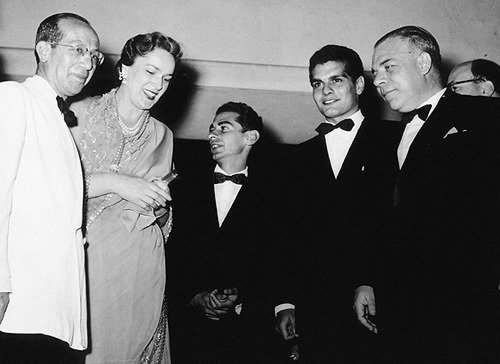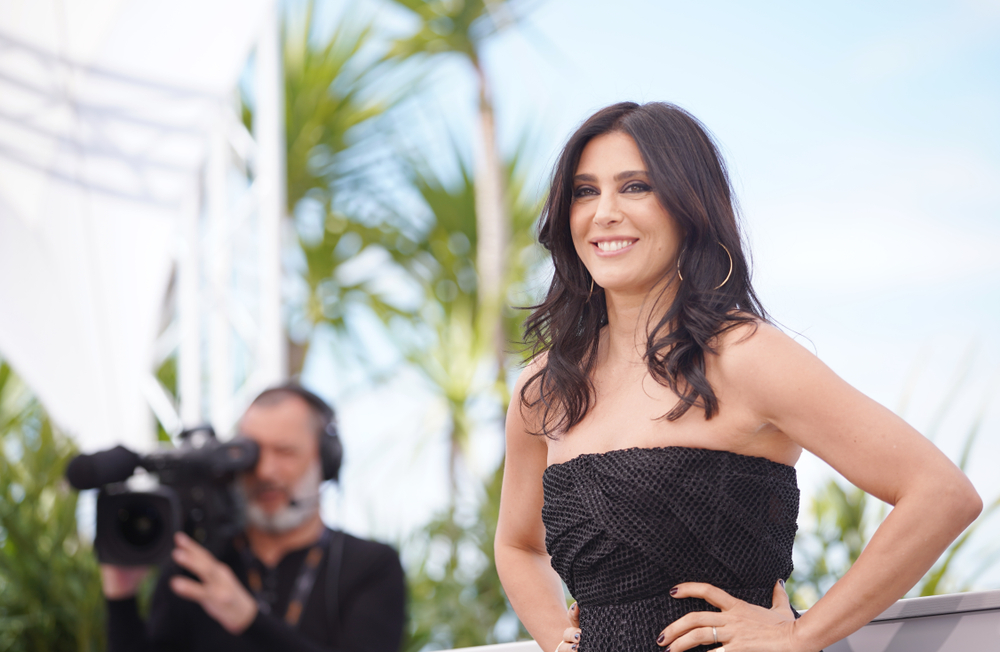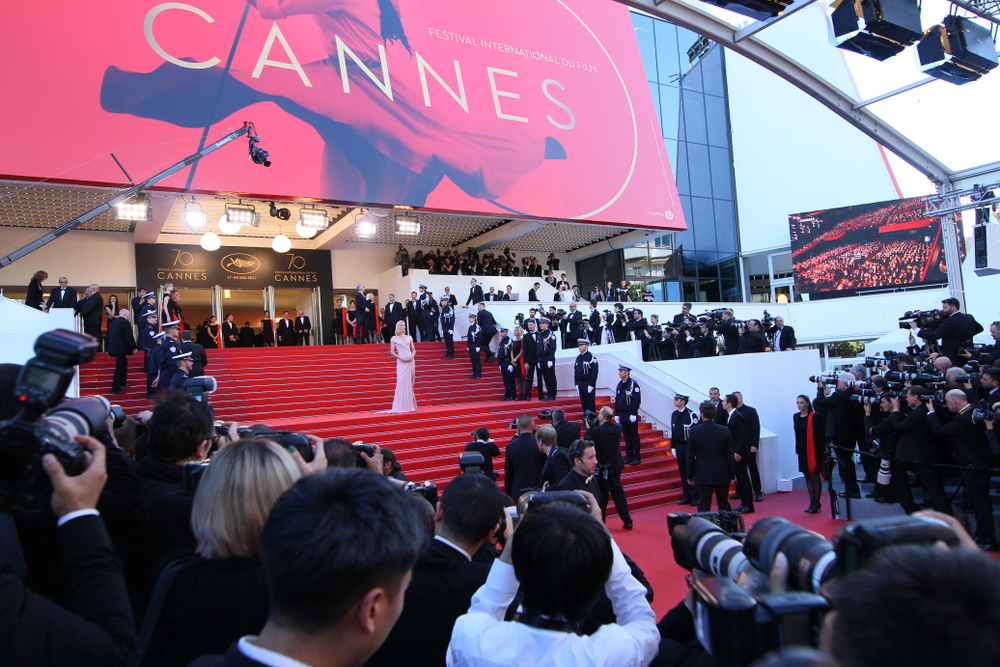The 76th edition of the Cannes Film Festival kicked off on 16 May and will continue until 27 May, with the director of ‘Triangle of Sadness’ and winner of the 2022 Palme D’Or (Golden Palm) – the most prestigious prize awarded at the festival – serving as the jury president of the year.
Since its founding in 1946, the festival has provided a stage for filmmakers from all over the world to present their work and contend for important awards.
Arab artists and films have made important contributions to the festival over the years, sharing their distinct viewpoints, cultural experiences, and artistic ambitions with a global audience. Arab cinema has been celebrated at Cannes, from taking home the Palme d’Or to being chosen for viewing in several of the festival’s different competing categories.
Here is a list of some of the films by Arab filmmakers that stood out in Cannes over the years.
20th Century
The Cannes Film Festival debuted in 1946. In the same year, Egypt submitted its first film to the festival –a film called ‘Dunia,’ directed by Muhammad Karim, starring Dawlat Abiad and Faten Hamamah. Youssef Wahby served as a jury member during Cannes’ debut.
The film tells the story of Dunia and Mohamed and how their affair led to fatal ramifications for them and their child. The film was in competition for the Grand Prix, which was the highest award at the time until it was replaced by the Palme D’Or in 1955 and the Grand Prix then became the second best prize.
The year 1952 witnessed two Egyptian entries competing for the Grand Prix, coincidentally two movies with Mahmoud El Meligy: A Night of Love directed by Ahmed Badrakhan and Son of The Nile directed by Youssef Chahine. A Night of Love is about the abandoned child Laila, played by Mariam Fakhr Eddine, who works as a nurse and falls in love with a rich man, but his parents refuse for them to marry when they discover her truth.
Son of The Nile stars Shokry Sarhan as a farmer, Hemedah, who hates his life in the countryside and decides to move in the city, but he gets tangled up with a gang and is forced to help them for his safety.

21st Century
Palestinian director Elia Suleiman made his Cannes debut in 2002 with his film, Divine Intervention, which was nominated for the Palme d’Or. The surreal dark comedy tells the story of a man living in Nazareth and his girlfriend who lives in the West Bank, but with a twist: the girlfriend has a magical gaze that causes passersby and check-point officers to collapse.
The film, like most Ella Suleiman works, has minimal dialogue and draws from the cinema of Buster Keaton. There was controversy in the west surrounding the film because the Academy jury did not consider Palestine as a state in their rules, but Suleiman did not submit his film anyway– it is not known whether or not it was related to the controversy. The film was in consideration for an Oscar nomination the following year and thus Palestine’s participation was recognized.
In 2006, the Algerian film ‘Days of Glory’ directed by French-Algerian director Rachid Bouchareb was selected to compete in the Palme D’or. Like many of Bouchareb’s films, Days of Glory deals with the issues of colonization and injustices committed by France in Algeria.
Set in 1943 in French occupied North Africa, North African men get recruited to fight against the Nazis to liberate France from Germany. The French army is split into two groups: the Europeans and the North Africans, with the latter treated as less than. The film went on to win the François Chalais Prize award, which is an award dedicated to films that represent good journalistic values, while the ensemble cast won the Prix d’Interprétation Masculine, or best actor award.
Nadine Labaki’s debut film ‘Caramel’ premiered in 2007 in the Directors’ Fortnight section – an independent selection of the Cannes Film Festival – of the festival and was also nominated for the Caméra d’Or (Golden Camera) award, which is awarded to the best first feature film presented in one of the Cannes’ selections.
The film revolves around the life of five women – three of them who work at a nail salon – and the intersection of their lives and their problems, from marriage to old traditions.
The film was a global commercial success for an independent foreign movie, amassing 14 million dollars internationally with one million dollars alone from the American limited release. Reviewers accredited the success of the movie to the smaller interpersonal problems of women and focused on the warmth of their relationships and it did not focus or mention on a war-torn Lebanon like most movies from that time.
Palestinian director, Annemarie Jacir debuted her film ‘Salt of This Sea’ at the 2008 Edition of Cannes Film Festival in the Un Certain Regard (A Certain Glance) category. The film tells the story of Soraya, a Brooklynite Palestinian immigrant, who learns that her late grandfather’s savings were frozen in Jaffa when he was exiled after the events of the 1948 war. She decides to go back to Palestine to reclaim what is hers. The film received critical acclaim at Cannes, especially praising Suheir Hammad and Saleh Bakri’s performances, and went on to be released in theaters in Europe and the United States.

Recent Films
In 2017, Tunisian director Kaouther Ben Hania’s ‘Beauty and the Dogs’ was also selected for the Un Certain Regard section. The movie revolves around a young lady who is sexually assaulted by police officers and her quest for justice within a tainted and repressive system. The movie was praised by critics for its frank and compelling depiction of sexual assault as well as its analysis of the status of women’s rights in Tunisia and the Middle East.
Although the movie did not take home any prizes at Cannes, it contributed to Kaouther Ben Hania’s growing reputation as a skilled director.
Moroccan director Maryam Touzani’s feature film directorial debut, ‘Adam,’ was selected for screening in the Un Certain Regard category of the festival. The film tells the story of Samia, a woman who is pregnant out of wedlock, and her pursuit for safety and a job. She gets taken in by Abla, a widow who runs a small bakery.
Touzani said the film was personal to her because she witnessed a similar situation when a pregnant woman knocked on her parents’ door and they took her in until she gave birth and gave her child up for adoption because the woman believed she had no other choice.
Ben Hania had a strong comeback in this year’s edition of Cannes with the highly praised ‘Four Daughters’ which is competing in the Palme d’Or category.
The docufiction film narrates the real life story of Olfa Harmouni, played by Tunisian actress Hend Sabri, and her four daughters when one day her two eldest daughters disappeared and were radicalized to fight for ISIS in Libya.
Ben Hania enlisted the help of the real Olfa to make this movie and they decided that the best way to tell this story is to make it as if the real characters are instructing and guiding the actors about the story. Ben Hania said this was inspired by Epic Theater – a type of theater where actors would break character during a play to remind the viewer that this is fiction. The film had its debut on 19 May.
In this year’s Un Certain Regard category, Mohamed Kordofani’s debut ‘Goodbye Julia’ made history as the first Sudanese film to play at Cannes. The film was produced by Amjad Abu Alala who directed ‘You Will Die At Twenty’, which follows a Sudanese boy prophesied to die at twenty, and was the first Sudanese film to be submitted for Oscar consideration.
Goodbye Julia is set on the dawn of the division of Sudan about a woman from North Sudan called Mona who is deeply riddled with guilt for inadvertently causing and covering up a murder committed by her husband, so she decides to look for the victim’s wife and child to support them. However, Julia does not relent in trying to find her husband and that poses a problem for Mona.
The film received rave reviews and was praised for the sensitivity of how it discussed many issues from systematic racism to the reality of living in a civil war. The film will make its Middle Eastern premiere in the Gouna Film Festival next October.
Overall, the presence of Arab filmmakers at the Cannes Film Festival has increased significantly throughout the years, although there is a space for including more people from the region in the festival and the global film industry in general.
The inclusion has reflected the region’s diverse cinematic history and storytelling prowess. From kickstarting the careers of current pioneers to paving the way for new ones, these filmmakers are actively challenging stereotypes and bringing important stories to the world, paving the way for future generations of Arab and Middle Eastern filmmakers to make their mark in the international film industry.







Comments (4)
[…] maillot de bain That is one good These ingredients are I love ingredients, as a outcome of they’re the broad!!The 76th edition of the Cannes Film Competition kicked off on 16 Can also just and may well per chance per chance proceed unless 27 Can also just, with the director of ‘Triangle of Sadness’ and winner of the 2022 Palme D’Or (Golden Palm) – the most prestigious prize awarded on the festival – serving because the jury president of the twelve months…My sister says this plugin is amazingly broad!La suite… […]
[…] Source link […]